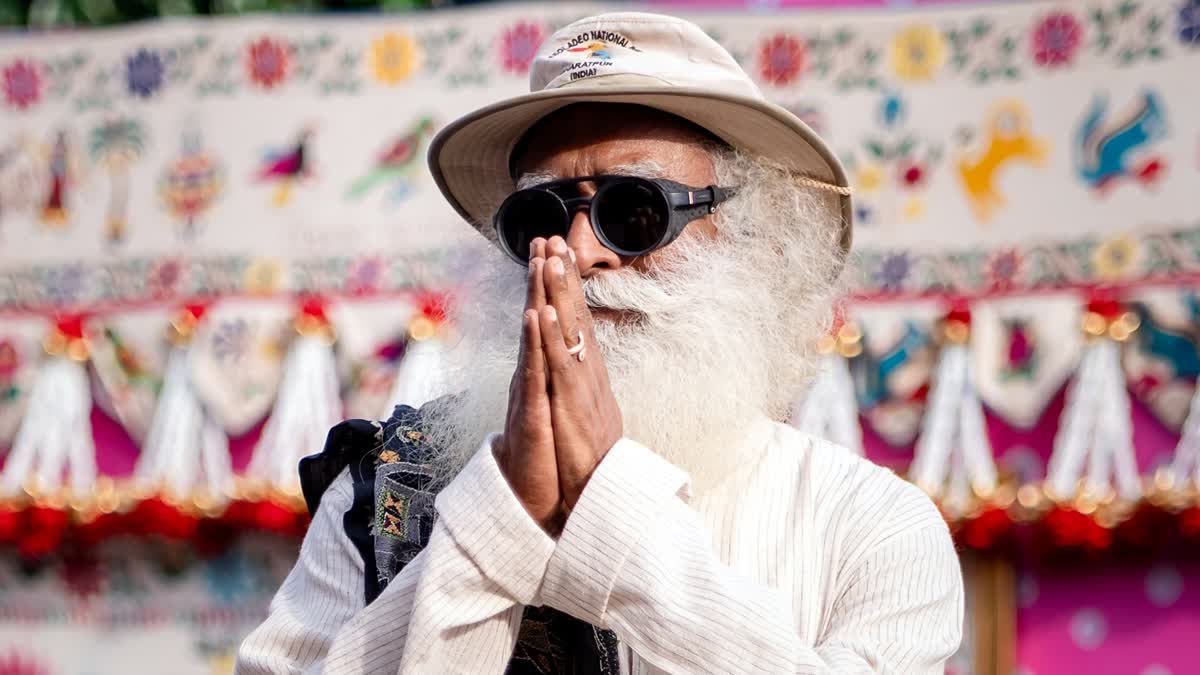New Delhi:In a major relief for Isha foundation, the Supreme Court on Friday closed habeas corpus proceedings against it, after noting the absence of evidence of illegal confinement.
Two women monks, aged 39 and 42, had told the court that they are voluntarily residing there without any coercion. The apex court said the Madras High Court should have closed the habeas corpus case and not proceeded further.
A bench led by Chief Justice of India D Y Chandrachud noted that the Tamil Nadu Police, in a report submitted to court, have not found any evidence supporting allegations of illegal confinement at the Isha foundation’s ashram, founded by Sadhguru Jaggi Vasudev. The bench, also comprising justices J B Pardiwala and Manoj Misra, said the court has decided to close the habeas corpus.
Citing the inquiry of police at the premises of the foundation, the bench said it will be unnecessary for this court to expand the scope of habeas corpus, and made it clear that its order would not come in the way of further investigation of the state in accordance with law.
The bench noted that for instance in the report it is mentioned that for women and children there has to be an internal complaints committee. “The idea here is not to malign somebody ... but there are certain secular compliances which are required,” said the bench. The CJI asked, "Is the idea is to hoist them and rip them because they do not have a committee?"
During the hearing, a counsel, representing the father of the women monks, made submissions before the bench. The CJI told the counsel that when you have grown children who are majors, you cannot file a complaint to control their lives.
The bench said relationships between grown up children and parents are never governed by filing petitions and these are not minor custody issues. “However, grave the anguish maybe, but she is a major,” the CJI said.
The apex court told senior advocates Mukul Rohatgi and V Giri, appearing for the foundation, that the idea is not to malign the organisation but you have to ensure comply with secular provisions. "They have to rectify the breaches," said the bench.
The top court said the two women monks had given their statements before this court as well as the police that they were living voluntarily and on their free will. "Once they have expressed their clear intention, the purpose of petition is duly fulfilled, no further direction is required," said the bench.
Senior advocate Sidharth Luthra, representing the Tamil Nadu government, argued that the closure of the proceedings in the matter should not come in the way of the state authorities. The state government had cited non-compliance with statutory provisions like operating X Ray machine without authorisation in a clinic over there and absence of Internal Complaints Committee under the POSH Act.
The bench recorded Isha's statement that if there is any regulatory compliance, the foundation would comply with it earnestly. The bench also criticised MP OBC Mahasabha, represented by advocate Varun Thakur, for intervening. The bench said intervention by a client of Thakur, as pointed out by Solicitor General Tushar Mehta, raises grave suspicion about the intention of the intervener.
The police initiated the investigation after an order passed by the Madras High Court on September 30, directing it to probe claims that two women, aged 38 and 42, were being held against their will at the ashram in Thondamuthur, Coimbatore.
According to the police report, prepared by the Superintendent of Police, Coimbatore, both women categorically denied their father’s claims, asserting that they were living at the ashram of their own volition. The women made it clear that they had willingly chosen the monastic path at the Isha Yoga Centre and were not under any pressure or coercion.
On October 3, the Supreme Court transferred to itself the petition pending before the Madras High Court, in which the high court had directed the police to report on criminal cases registered against the Isha Yoga foundation. After interacting with the two women monks, the bench said the women informed the judges that they are staying voluntarily and they do not want to leave the ashram. “Second, they said the police who were there for two days’ had left last night. The entire police team (150 policemen) have left the ashram”, said the bench.
Vasudev's Isha foundation moved the Supreme Court against an order passed by the high court, seeking a report from the Tamil Nadu government on all criminal cases registered against him and the foundation.
Read more



